What was discussed at the G7 Culture Meeting held in Naples on September 20 and 21, 2024? The meeting of G7 culture ministers held at the Royal Palace was a crucial moment to discuss and address contemporary challenges in the field of culture and creativity. In a global context of rapid technological change, environmental crises, and threats to cultural heritage, cultural leaders from G7 nations gathered to reaffirm the importance of culture as a key pillar of sustainable development.
During the summit, the urgency of protecting tangible and intangible cultural heritage, which is increasingly threatened by phenomena such as illicit trafficking of cultural property and extreme weather events, emerged. Participants recognized the devastating impact these issues have on communities and cultural identity and proposed a cooperative and comprehensive approach to combat them. This includes measures to promote transparency in the art market and the adoption of ethical practices by the various actors involved.
In addition, G7 leaders stressed that climate change poses a significant threat to cultural heritage and cultural institutions. Therefore, the importance of developing mitigation and adaptation strategies, integrating culture-based solutions and leveraging traditional knowledge into risk management policies was highlighted in Naples. The summit also encouraged the use of innovative technologies, such as artificial intelligence, to improve research and monitoring of cultural heritage.
The G7 Culture G7 in Naples thus aimed to chart an integrated and sustainable vision, in which creativity and cultural heritage are at the center of a global dialogue. These efforts aim to ensure that cultural policies are not only responsive to current challenges, but also proactive in fostering resilience and innovation, contributing to a more sustainable and inclusive future for generations to come. Below, in detail, is the summary of what was discussed at the G7 Culture G7 during the two-day event in Naples, which was put down in black and white by the ministers in their final declarations: four points, divided into principles and actions to which the ministers say they are committed.
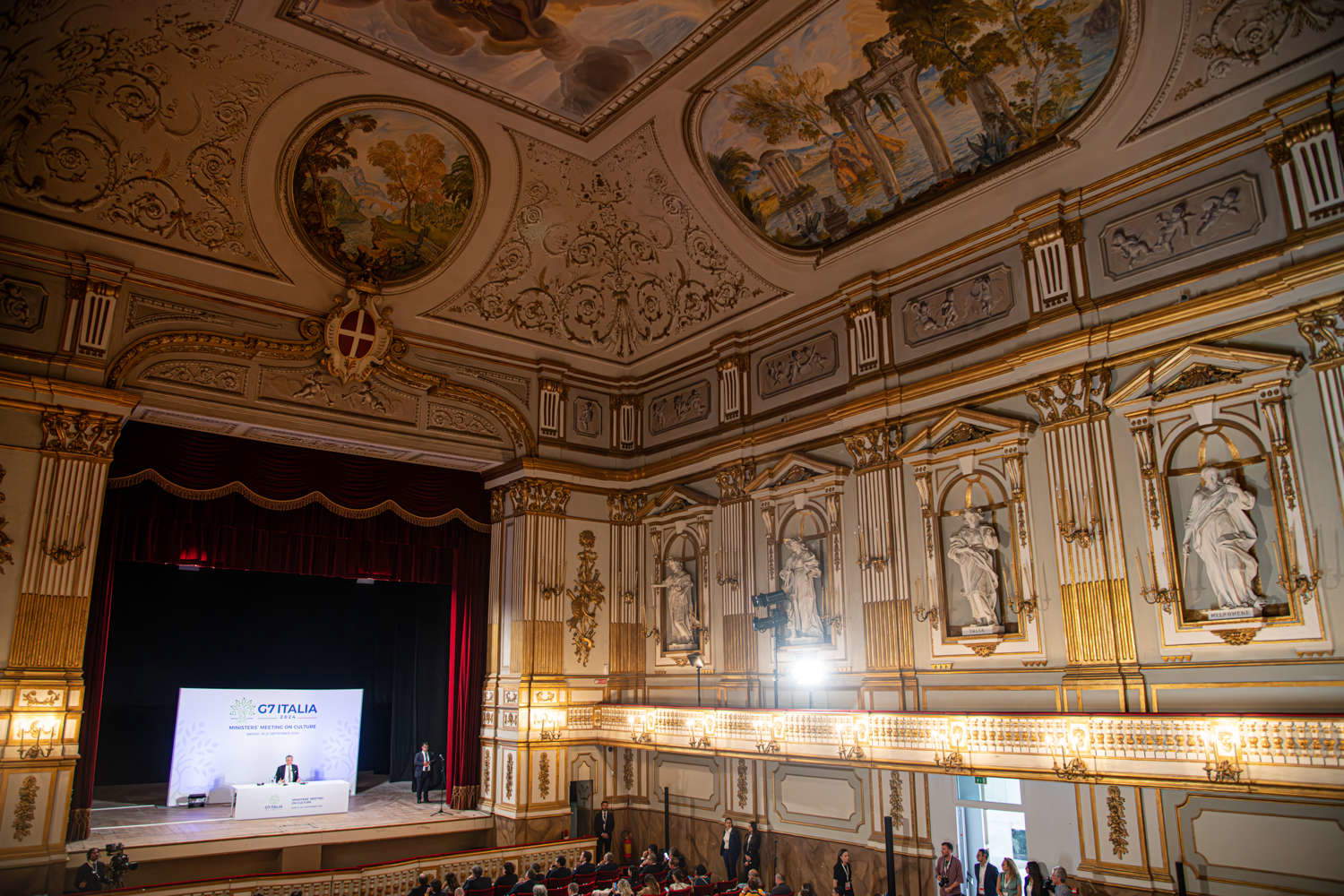
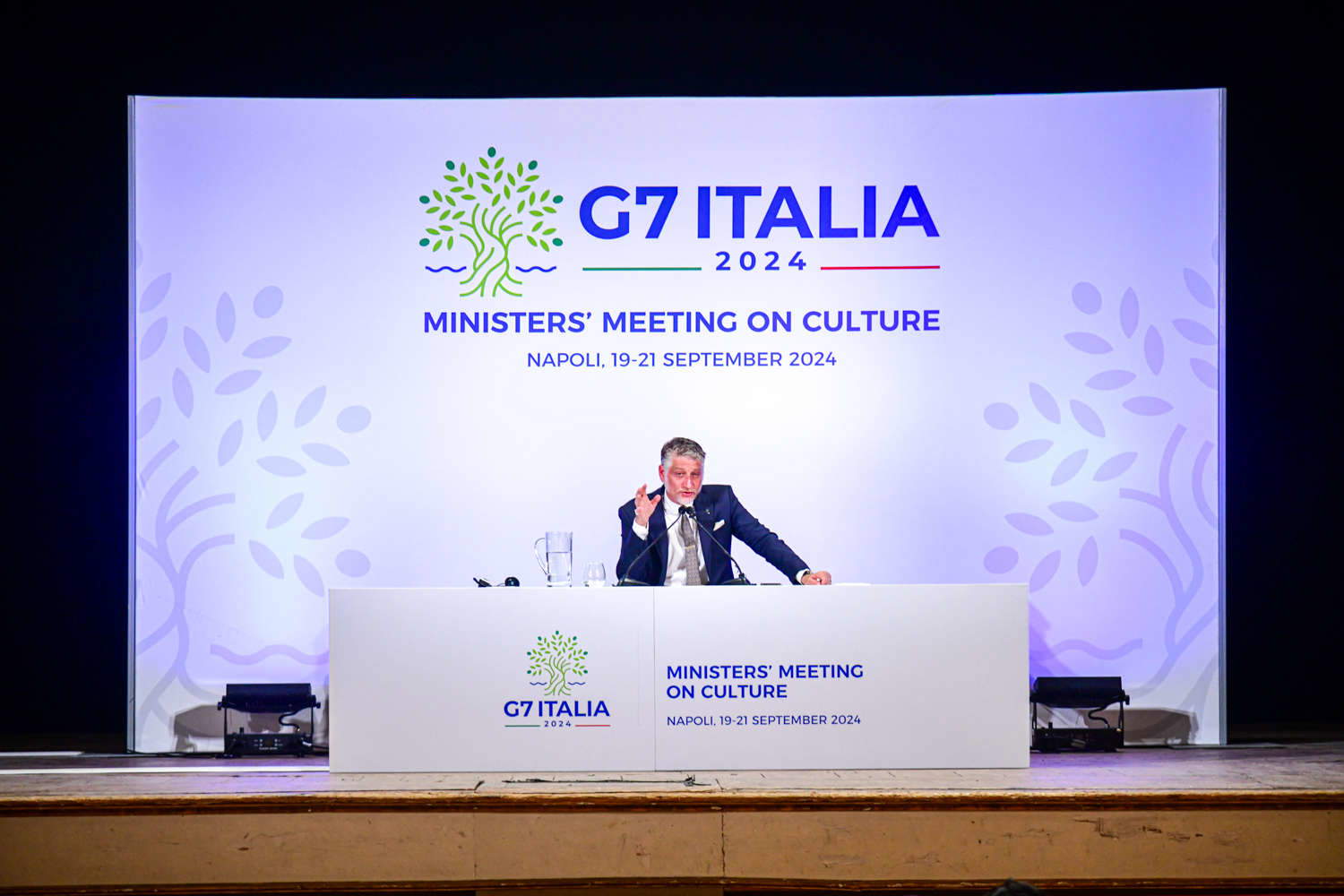
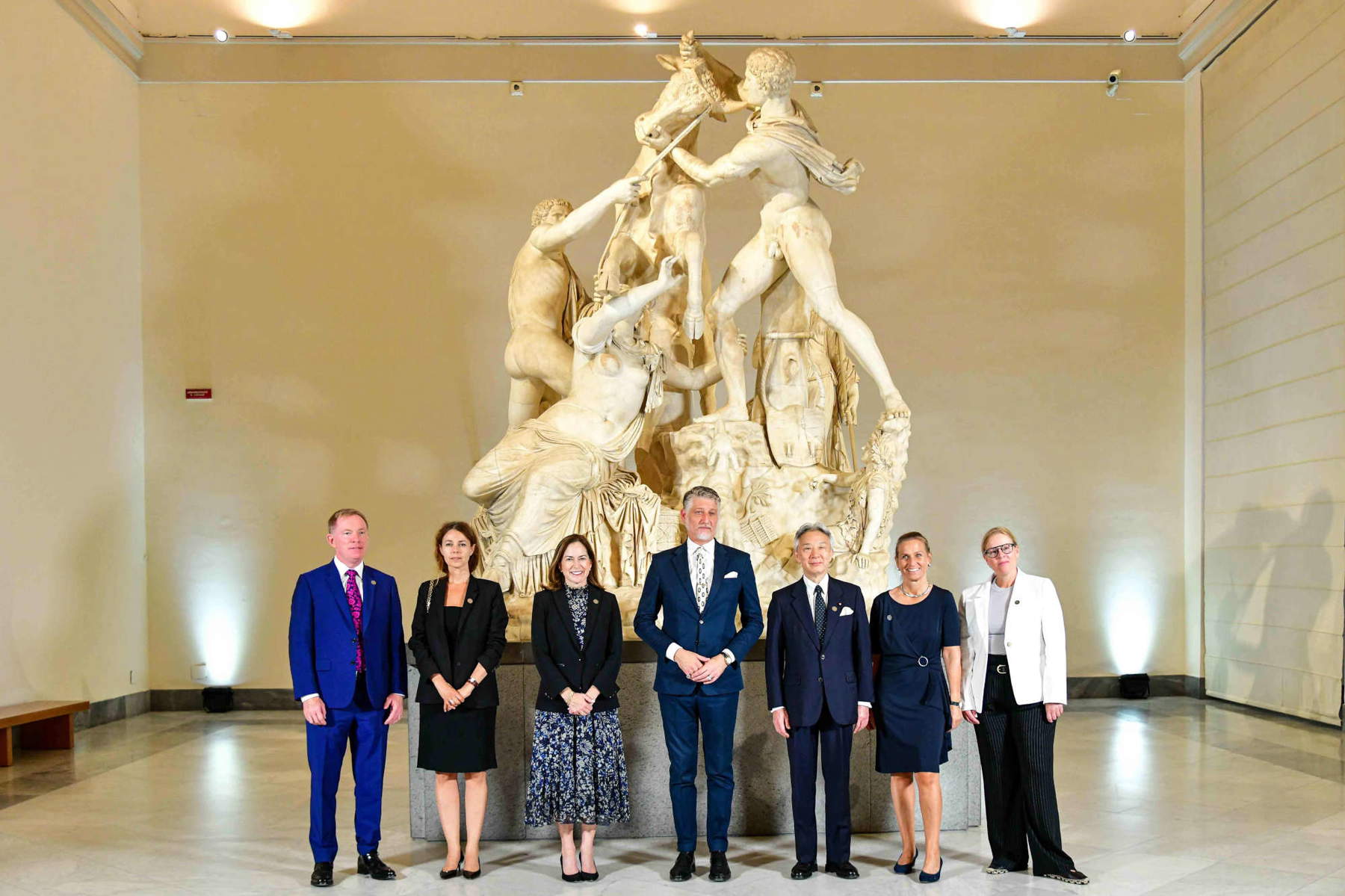
The G7 culture ministers recognized the fundamental role of culture in defining identities. Culture is seen not only as artistic or historical heritage, but also as an intrinsic resource that supports values such as freedom of expression, democracy and pluralism. It is emphasized that cultural diversity promotes tolerance, peaceful coexistence and mutual understanding in an increasingly interconnected world. The main normative references are international conventions and declarations, including the 2003 UNESCO Convention on the Safeguarding of Intangible Heritage, the 2005 UNESCO Convention on the Protection of Cultural Expressions, and the United Nations Declaration on the Rights of Indigenous Peoples (2007). The role of adaptive rehabilitation and reuse of historic buildings as a key to sustainable urban regeneration, in accordance with UNESCO conventions and recommendations, is also mentioned. Ministers placed special emphasis on cultural and natural landscapes, which represent not only material heritage but also the historical and cultural expressions of communities. Landscapes are seen as pillars of collective identity and key tools for regenerating and enhancing societies in a sustainable way. The crucial role of artists and cultural professionals in promoting and protecting cultural identities was also recognized. Cultural institutions such as museums, theaters, libraries and archives are seen as centers of education, social cohesion, dialogue and sustainable development. Finally, culture is identified as a powerful resource for addressing global challenges, turning them into opportunities anchored in shared values. Ministers stressed the importance of protecting cultural heritage from deliberate destruction and infringement of intellectual property rights, while ensuring artistic freedom.
Ministers are committed to protecting and promoting the plurality of cultural identities and expressions, including the rights of indigenous peoples. Cultural diversity is considered a valuable asset to be defended against any attempt at erasure or marginalization. In this regard, ministers will adopt an inclusive approach that ensures the participation of all communities, particularly marginalized ones, in cultural decision-making processes. Universal access to culture, with special attention to young people, has been identified as a primary goal. In this context, the commitment to the preservation of landscapes and built heritage is reaffirmed. Any form of destruction and appropriation of cultural heritage during conflicts and crises was strongly condemned, as this poses a direct threat to peaceful coexistence and human rights.
A special focus was devoted to the crisis in Ukraine. Ministers condemned Russian aggression and the destruction of Ukrainian cultural sites and expressed support for Ukraine’s efforts to protect and regenerate its cultural heritage. They pledged to coordinate international initiatives and engage partners in such efforts. The promotion of culture is also seen as a tool for social and economic development, job creation and sustainable tourism. Ministers reiterated the importance of protecting freedom of expression, including for artists and journalists, by promoting respect for dissenting opinions in a democratic debate.
Attention also needs to be paid to cultural work: ministers from the G7 countries pledged to foster cultural policies that will aim to improve the working conditions of artists and professionals in the sector, guaranteeing their economic, social and cultural rights. Another commitment is to promote quality education that will enable new generations to preserve and transmit cultural heritage. Finally, the ministers recognized the role of digital technologies in sharing and promoting cultural identities. They pledged to ensure that these technologies respect intellectual property rights and promote an inclusive digital landscape that values multilingualism and cultural diversity and avoids cultural homogenization. Developing countries, particularly those inAfrica (the second day of the G7 Culture Day focused on the African continent) will also receive support to protect and promote their cultural heritage. The last part of the final document focuses on expanding partnerships to use culture as a lever for peace, resilience and sustainable development, with a special focus on African states, strengthening the representativeness of the World Heritage List.
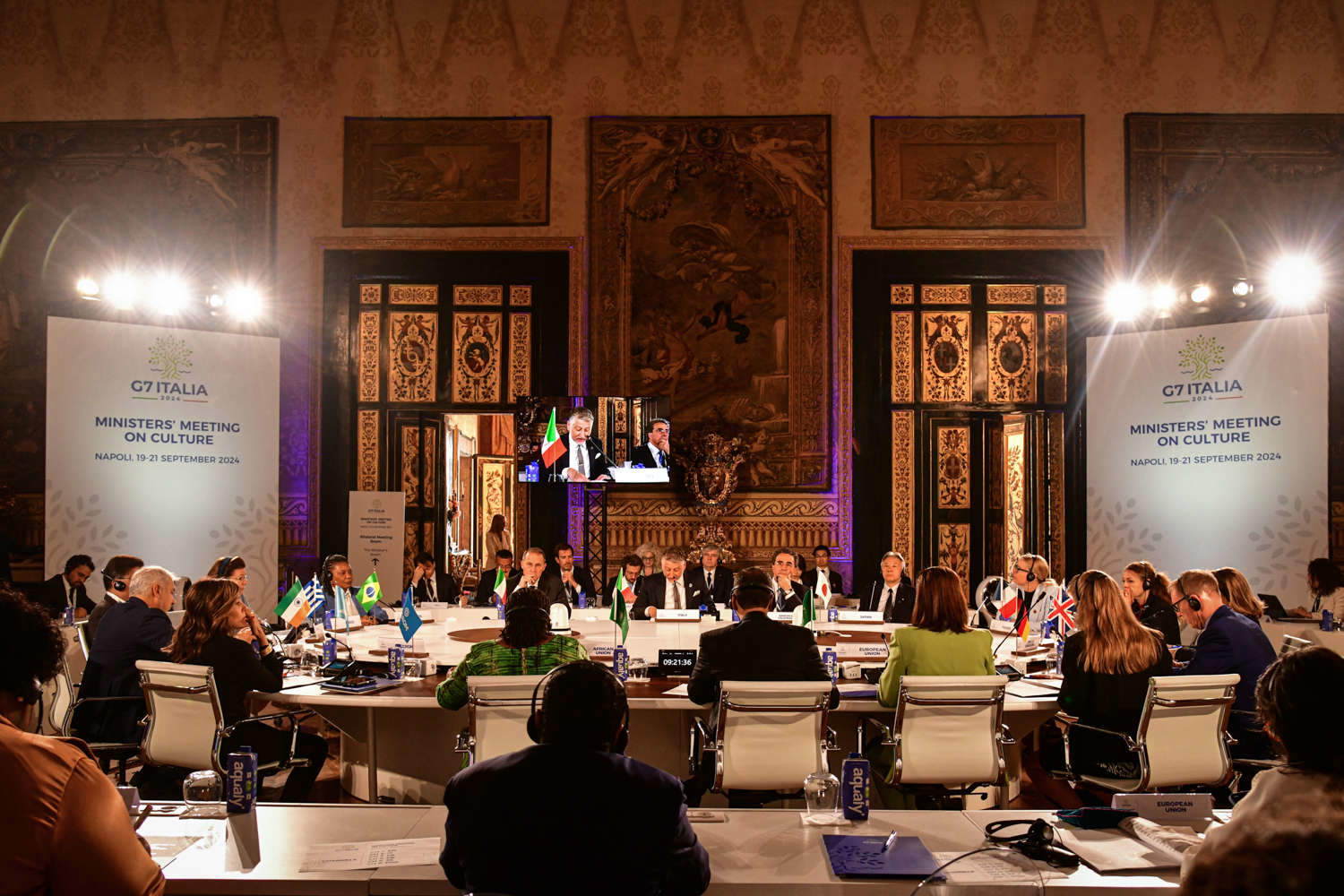
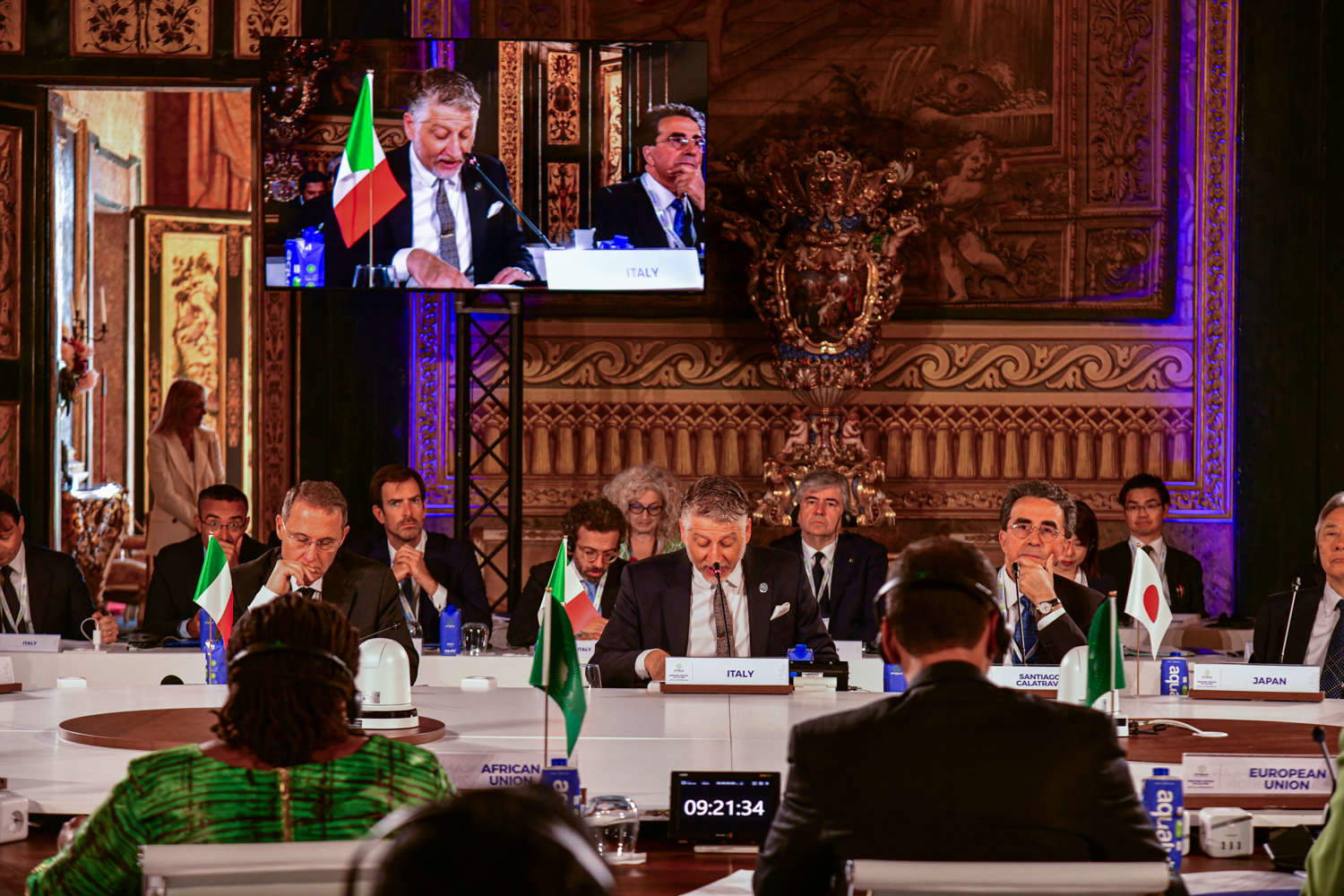
On the topic of culture and creativity in the age of artificial intelligence (AI), the ministers’ final document starts from the recognition of creativity as a uniquely human capacity. The ministers stress the importance of valuing the talents of artists and cultural professionals, emphasizing the uniqueness and originality of human works, which are fundamental to the development and diversity of societies and economies. Culture is seen as a crucial resource to guide the development of human-centered AI that respects human rights, intellectual property, and cultural diversity. Indeed, AI offers significant opportunities for the cultural and creative sectors by facilitating creative processes, better managing data, and supporting research and preservation of cultural heritage, thereby improving productivity and access to new economic streams. However, AI also poses risks that need to be carefully managed, as its growing impact on cultural industries could negatively affect the working conditions and livelihoods of cultural professionals. For this reason, the ministers recall the importance of a strong regulatory framework to protect intellectual property rights, ensuring that the cultural ecosystem remains viable and sustainable. It is reiterated that AI systems must respect these rights and act transparently regarding the use of cultural data.
From an action perspective, ministers commit to pursuing an inclusive and human-centered digital transformation that not only promotes economic growth but also respects the rights of cultural professionals. They highlight the need to cooperatively address the ethical, legal, economic and social implications of AI, particularlygenerative AI, through the improvement of existing regulatory frameworks. AI should be used to expand access to culture and cultural participation by ensuring that creators’ works are globally findable and accessible, including content from culturally underrepresented groups. In addition, responsible use of AI that respects privacy and intellectual property rights is promoted, and identification of cultural content generated or modified by AI is encouraged. Emphasis is placed on digital and technical skills training, with the goal of equipping cultural sectors with the skills needed to work with AI technologies safely and reliably. This also includes improving digital literacy and developing specific skills, such as programming and data management, to ensure that creators and cultural industries can take full advantage of generative AI. Finally, the paper promotes research to better understand the long-term impact of AI on cultural and creative industries, and the adoption of measures to mitigate cultural biases in AI models by encouraging the use of data representative of global cultural and linguistic diversity.
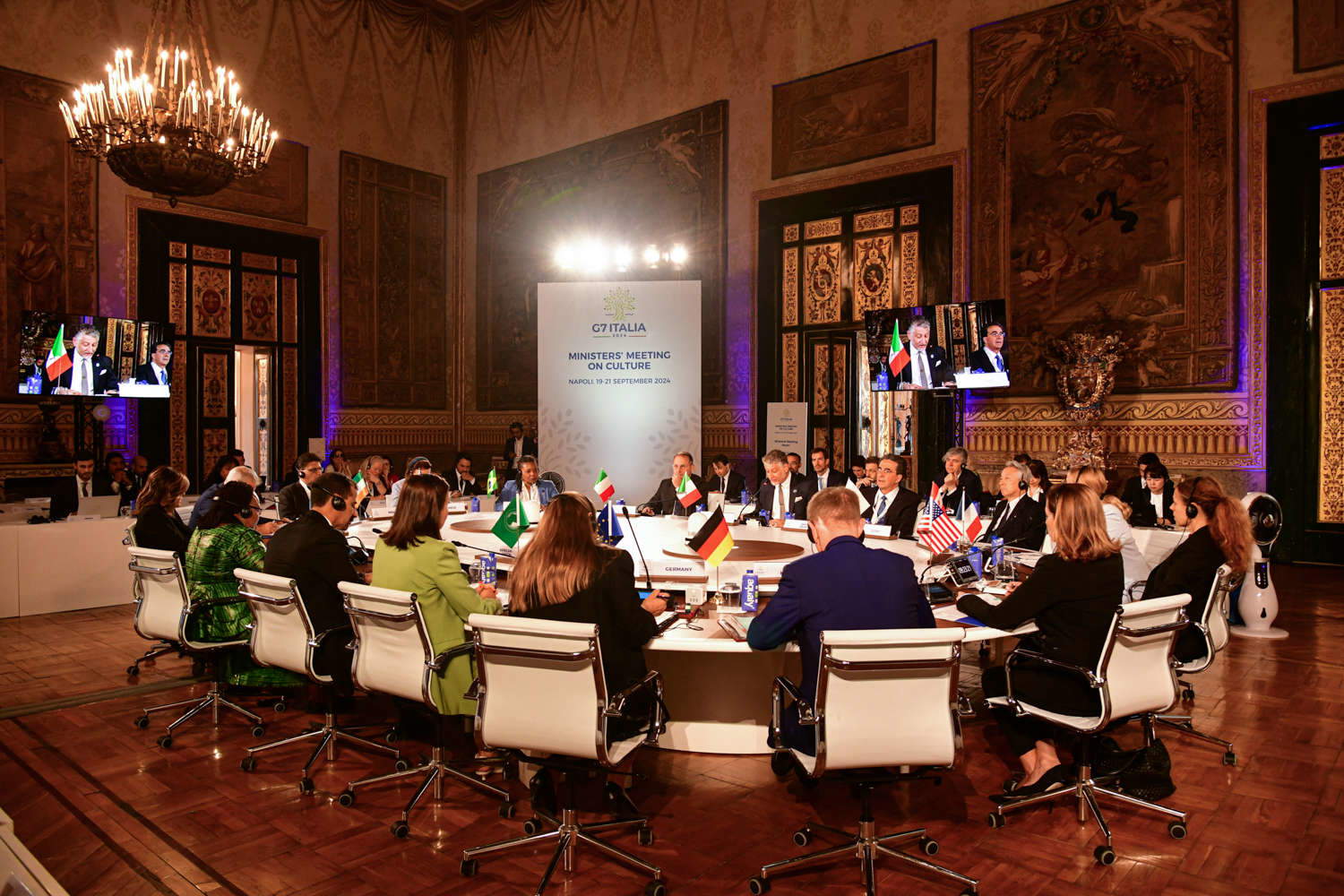
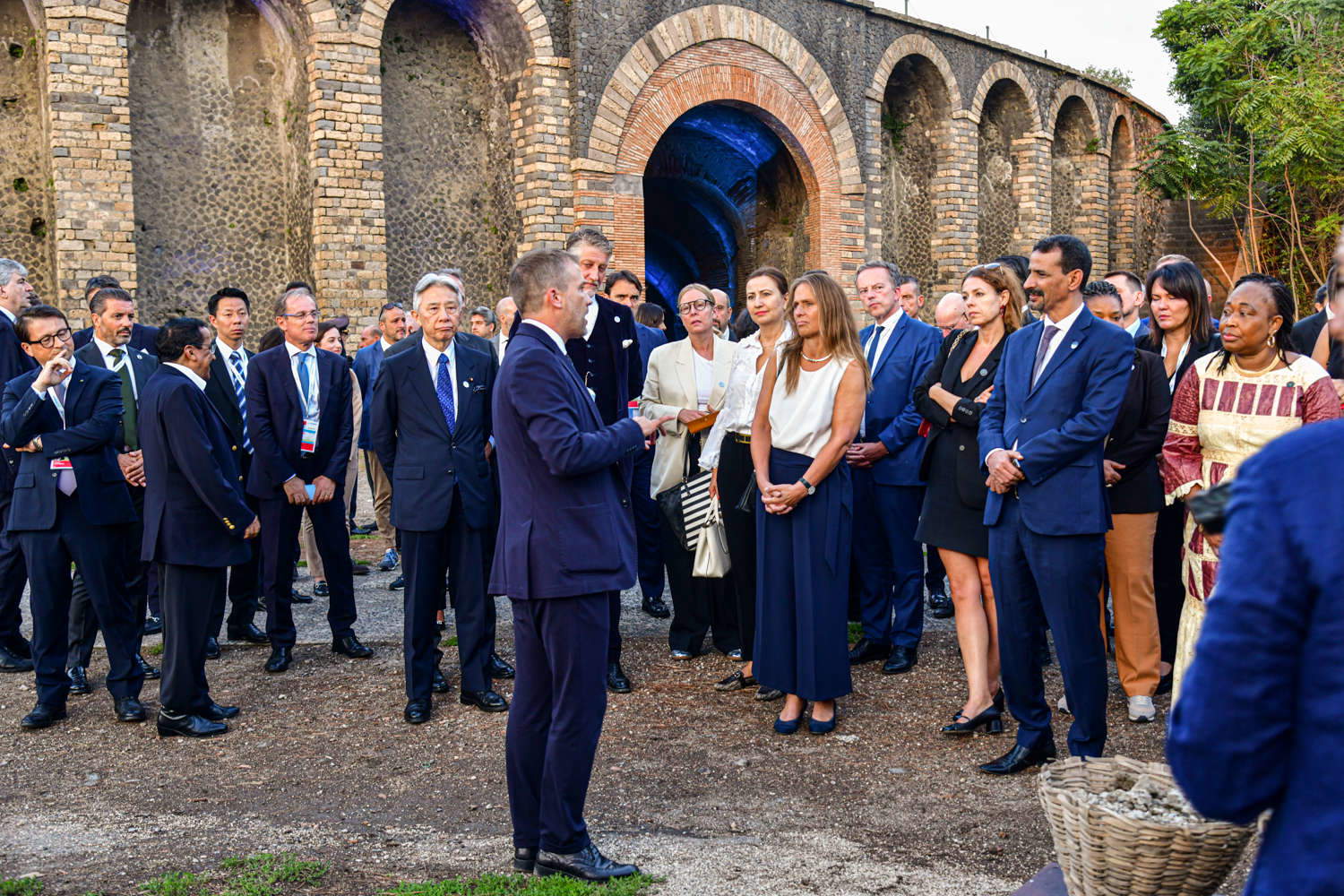
On the topic of the global fight against the illicit trafficking of cultural property, the G7 ministers acknowledged the devastating impact this phenomenon has on the cultural heritage and institutions of various countries and communities. Illicit trafficking not only destroys irreplaceable cultural resources, but also undermines socio-cultural practices and their transmission to future generations. In addition, the ministers highlighted how such trafficking is linked to criminal organizations, the financing of terrorism, particularly in conflict contexts, as well as crimes such as money laundering and corruption. The increasing prevalence of illegal trade in cultural property via online platforms, social media, and the Dark Web further complicates monitoring and combating these crimes. For this reason, it is important to promote transparency and ethical practices in the art market, such as provenance research, in order to ensure safe and reliable markets and foster trust among stakeholders.
Actions proposed by the G7 countries to combat the illicit trade in cultural goods aim to strengthen international cooperation and coordination. It is recognized that this phenomenon is a global problem that requires global solutions and the involvement of international organizations such as UNESCO, United Nations Office on Drugs and Crime (UNODC), International Centre for the Study of the Preservation and || Restoration of Cultural Property (ICCROM), Organization for Security and Cooperation in Europe (OSCE), World Customs Organization (WCO), International Institute for the Unification of Private Law (UNIDROIT), International Criminal Police Organization (INTERPOL), European Union Agency for Law Enforcement Cooperationlaw enforcement (EUROPOL), International Council of Museums (ICOM) and International Council on Monuments and Sites (ICOMOS). This is to improve systems for the prevention and detection of cultural heritage crimes.
The importance of promoting wider ratification and implementation of existing international instruments, such as the 1970 UNESCO Convention against the Illicit Trafficking of Cultural Property, the UNIDROIT Convention on Stolen or Illicitly Exported Cultural Property (1995), and the UNESCO Convention on the Protection of Underwater Cultural Property (2001), is emphasized, and the possibility of negotiating bilateral agreements to facilitate cooperation in the recovery of stolen property is considered. A central aspect of the strategy is the use of technological innovation. G7 countries intend to improve accessibility and interoperability between national and international databases on stolen cultural property, such as INTERPOL and UNESCO databases, to facilitate information exchange and speed up investigations. In addition, advanced artificial intelligence tools will be promoted to monitor and analyze the illegal trade in works of art, building on experiences such as the Italian Comando Carabinieri per la Tutela del Patrimonio Culturale. The involvement of all stakeholders, including museums, heritage professionals, and the art market, is also seen as key to spreading awareness about responsible management of cultural property and promoting due diligence practices. The paper also highlights the importance of global training and capacity building. The G7 intends to work with international organizations and professionals to strengthen the skills of law enforcement, law enforcement and heritage professionals in the fight against illicit trafficking. Special attention is given to developing countries, particularly those in Africa, to ensure that they are equipped with the necessary tools and skills. The development of a global training protocol, based on previous OSCE and UNESCO initiatives, is proposed to optimize approaches in combating illicit trafficking of cultural property. Finally, it is planned to work within existing normative frameworks, such as the 1970 UNESCO Convention, by developing joint initiatives and strengthening networks of experts at the national and international levels. Information exchange and the sharing of investigative techniques and technological tools are seen as key elements in the effective implementation of international conventions and in combating the illicit trafficking of cultural property.
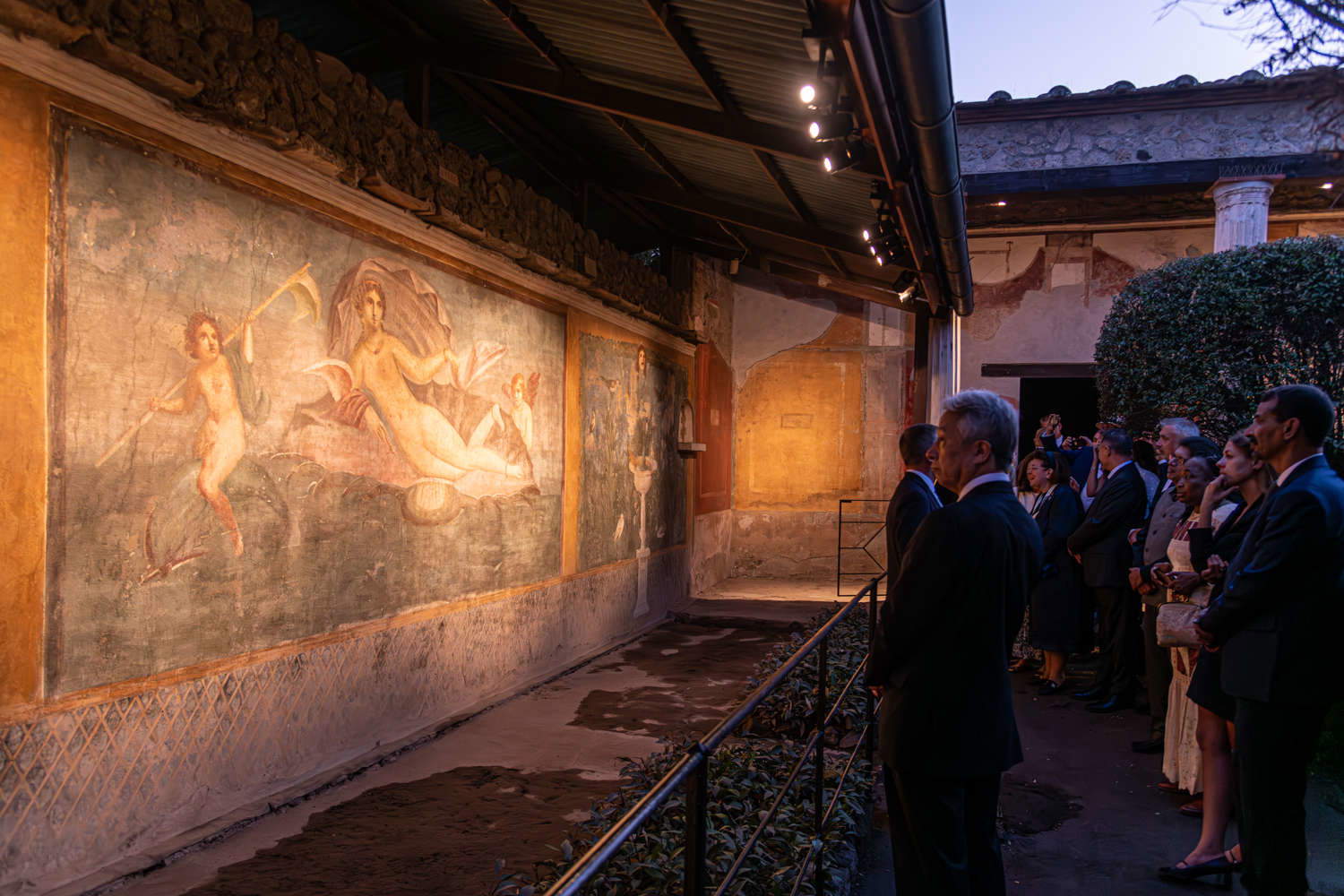
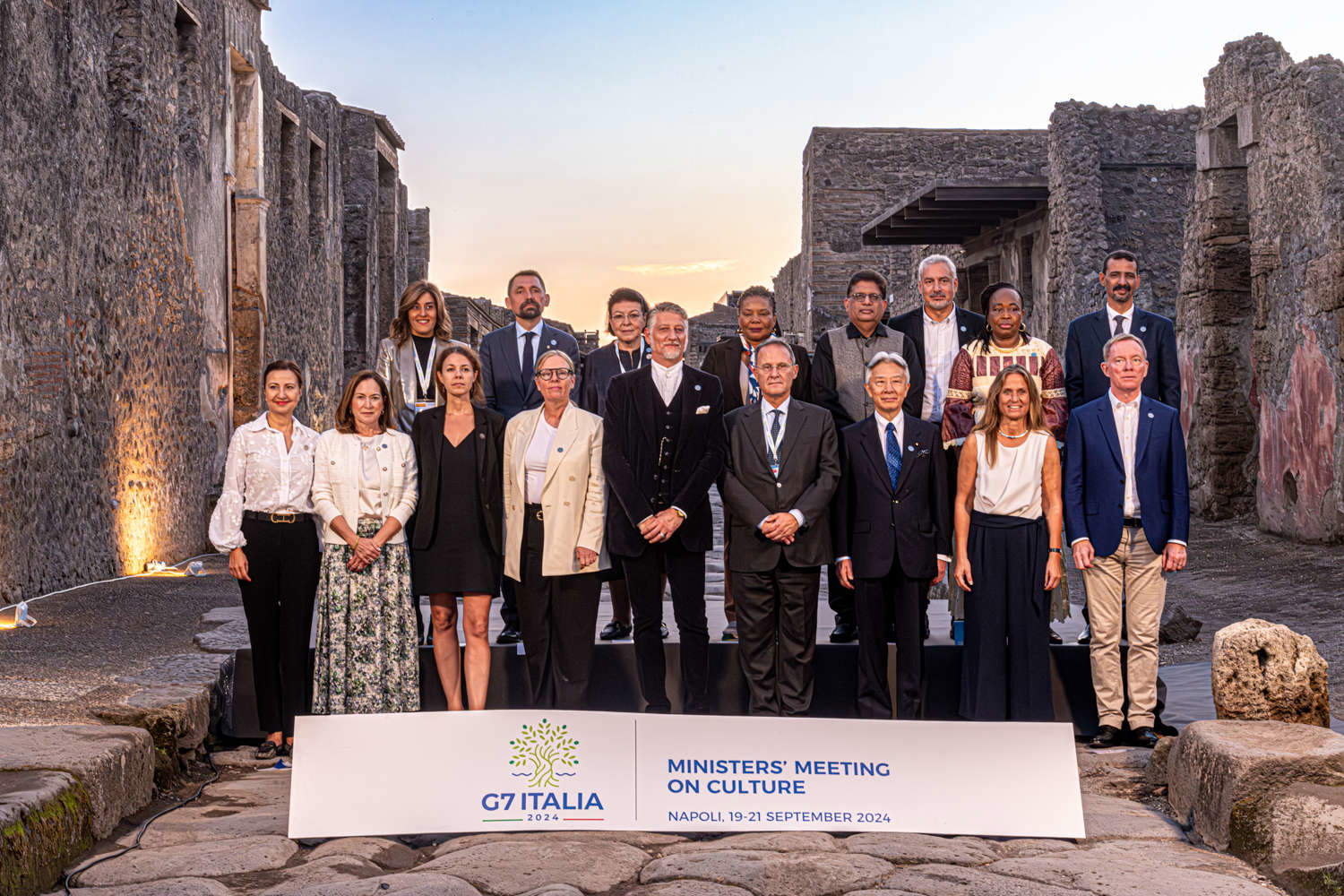
Finally, space was given to the issue of cultural heritage resilience in the face of climate change and natural disasters: ministers expressed concern about the increase in the frequency and severity of extreme weather events and natural disasters, which put tangible and intangible cultural heritage at risk. These impacts can have profound consequences for communities, as cultural heritage is a source of identity, meaning and livelihoods. The paper recalls the importance of the Sendai Framework for Disaster Risk Reduction and other UNESCO recommendations, emphasizing that culture can play a key role in raising public awareness and inspiring sustainable practices.
The value of indigenous knowledge and traditional knowledge systems as crucial sources for understanding the environment and adapting to climate change is also recognized. Cultural institutions, such as museums and libraries, can educate and raise public awareness by promoting sustainable cultural events and more environmentally friendly lifestyles. It is crucial to integrate environmental sustainability and climate issues into cultural policies, as well as to recognize culture in shaping climate policies.
Among the proposed actions, the G7 is committed to promoting mitigation and adaptation strategies that respect cultural and social values, as well as facilitating the ecological transition of the cultural and creative sectors. The need to involve local and indigenous communities in the development of culture-based solutions is emphasized, valuing their traditional knowledge to increase the resilience of landscapes and cultural heritage. Research and technological development are considered essential to prevent future damage and improve disaster planning and response. Preventive documentation of cultural heritage is also promoted to prevent its irreversible loss. The outcome document recalls the progress made during the 2023 United Nations Climate Change Conference (COP28) with the integration of cultural heritage protection into the global climate resilience framework. The G7 supports the inclusion of culture in national adaptation plans and nationally determined contributions, targeting heritage protection as part of global climate change efforts. Finally, the G7 Culture Ministers reiterate the importance of culture as a driving force for achieving the Sustainable Development Goals of the 2030 Agenda and support the inclusion of culture in future discussions on sustainable development beyond 2030.
Warning: the translation into English of the original Italian article was created using automatic tools. We undertake to review all articles, but we do not guarantee the total absence of inaccuracies in the translation due to the program. You can find the original by clicking on the ITA button. If you find any mistake,please contact us.